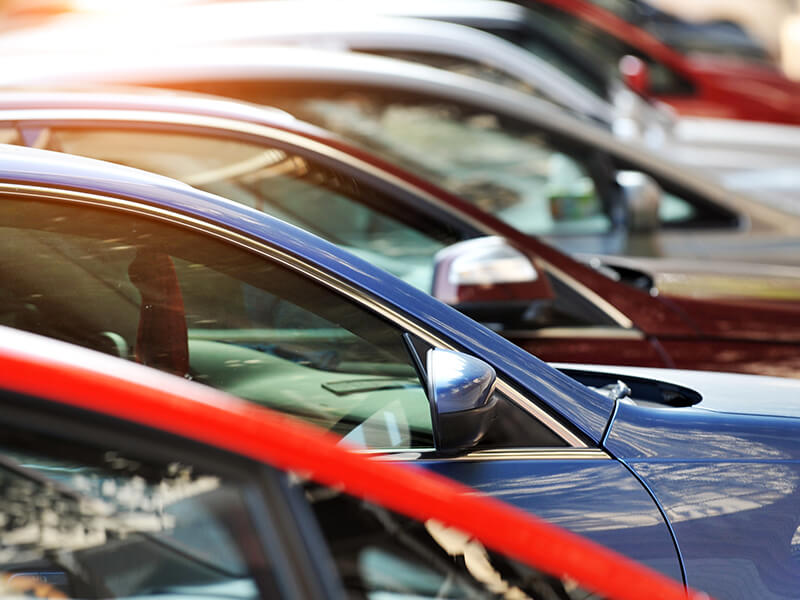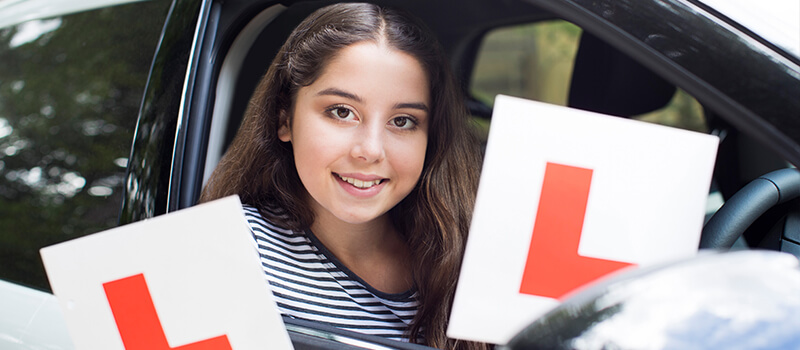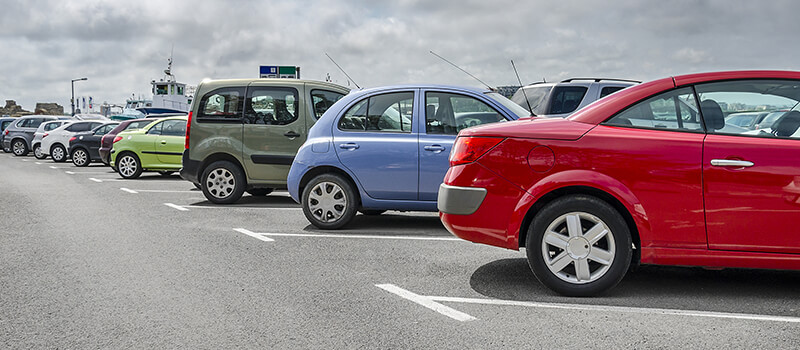So you’ve just passed your driving test. You’re excited. You have your new shiny driver’s licence and a whole host of plans… You just need a car to do them in.
This is where things can get confusing and maybe even feel overwhelming. You might have heard about leasing versus buying a car, but what are the benefits of each? Which should you go for? What car should you choose? And, as you’ve only just passed your test, is it even possible for you to lease a car?
If you are asking questions like this, then there’s no need to go deep-diving into the internet to figure it all out. We have all your questions answered below.
- What is leasing a car?
- How does car leasing work?
- What is the difference between PCH and how is different to PCP?
- I’ve just passed my test – can I lease a car?
- How much does it cost to lease a car?
- How do I lease a car?
- Which car should I buy?
- Is it better to buy or lease a car?
- Is leasing a car worth it?
- Does car leasing include insurance?
- Can you lease a used car?
- Can you lease a car with bad credit?
- Can you put a private plate on a lease car?
- Do you need to pay for an MOT on a lease car?
What is leasing a car?
It’s renting a car for some time, usually two to four years. You do not own it; the car remains the property of the company that leases it to you. When the lease contract ends, it will return to the company.
It’s much the same as renting a flat, where you put down an initial deposit, then pay a monthly rental fee until the contract with the landlord ends. Then the renter leaves the flat and it goes back to the landlord. However, the initial payment is not returned after leasing a car.
How does car leasing work?
Many car dealerships and finance companies now offer car leasing deals. The deals will usually be split into an initial upfront payment and a contract term.
- Initial payment: This is a one-off cost you pay upfront to secure the car, typically the equivalent of a few monthly rental payments. Often, the more you pay in this initial payment, the less you will need to pay monthly afterwards.
- Contract term: The amount of monthly rental payments you’ll need to pay. This will likely be 2, 3 or 4 years long, but might be shorter or longer depending on the business you sign up with.
Once the contract has ended, you will return the car to the lease provider. You can then start a new lease agreement with them for another car, should you want to.
What is PCH and how is it different to PCP?
Personal Contract Hire, also known as PCH, is another term for leasing a car. Personal Contract Purchase, also known as PCP, is a similar but different contractual agreement. Both have an initial payment and monthly payments afterwards. However, the big difference is that at the end of a PCP contract, you can make a final, large payment to pay off the contract and own the car. With PCH, you never have the option to own the vehicle.
I’ve just passed my test – can I lease a car?
You’ll be pleased to know that being a new driver does not stop you from leasing a car. Most people can, but the company leasing it to you will always check whether they think you can afford it, along with your credit history and your age.
Unfortunately, if you have passed your driving test at 17, you’ll have to wait a while to lease a car as you must be over 18 to enter into a lease agreement.
How much does it cost to lease a car?
This will depend largely on the car you wish to lease, how long you want it for and how far you wish to drive it.
- Make/model of the car: The more expensive the car, the more you will need to pay to rent it.
- Time: The longer the contract, the more you will pay.
- Mileage: Your lease agreement will include a yearly mileage limit. If you go over this, you will be charged extra at the end of your lease. This is because your car will have depreciated more (i.e. lost more value) due to the extra miles it has travelled. If you think you might exceed your mileage limit, it’s worth speaking to your contract provider and increasing it. This will likely increase the cost of your monthly payments, but it will work out less than being charged a fee at the end of the contract.
How to lease a car
Once you’ve found a company you want to lease with, or better yet a car you want to lease, it will be time to complete some checks and forms.
You will need to provide proof of your ID and that you are legally safe to drive. This means you’ll need to show your driving licence and a proof of address.
The finance company will want to know that you can afford to pay for the car. They will ask you to provide information on how much money you have coming in and how much you spend to make sure you can afford the monthly payments. The more money you have left over after you’ve paid all your outgoings, the more likely you’ll be given the green light.
They’ll also check your credit history to see if you’ve paid back any money you’ve borrowed in the past. If you don’t have much of a credit history or your credit history isn’t the best, there are steps you can take to improve it: see this article on Money Savings Expert for some tips on how to improve your credit rating. Some leasing providers may also allow you to nominate a guarantor, to make the payments if you can’t. If you do this, that person will need to sign the agreement as well as you.
Once you have signed the agreement, put down the agreed payment and are insured, you will be given the car to drive.
Which car should I choose?
Finding the right car can feel daunting, but asking these questions can help:
- Do you want a manual or automatic vehicle?
- How many seats do you need?
- What is your budget?
- Where will you be driving the car?
- How big do you want the car to be?
- How fast do you want it?
- How much will it cost to insure?
Asking questions such as the above will help you get a clearer idea of what you want. You can then narrow your search down to the factors that are most important to you.
It may not be possible to get exactly the car you are after but, by making it clear what the essentials you want are, you will hopefully find one you are happy to drive that fits your budget.
Is it better to buy or lease a car?
If you want to drive a new car but don’t have the money to buy one, then leasing can make your dreams happen. On the other hand, you never own the car, which can cause its own problems.
So is leasing a car a good idea? We provide a brief summary of the pros and cons below.
Pros to consider:
- Car is under warranty so repair costs will be less
- Lower monthly payments than if buying a car on finance
- You can drive a better, newer car for less money upfront
- You will likely drive a new car more often than if you bought a car
- You don’t need to worry about depreciation like you would if you had bought a car
- You don’t need to sell or trade in the car when you are finished with it
Cons to consider:
- You never own the car
- If there is excessive damage to it, you will face extra charges
- It’s likely that you will pay more long term than if you had bought it
- You can’t modify the car as it’s not yours
- You can’t use it to part exchange for a new car
- If you need to get a different car before your contract ends, it can be expensive to leave the contract
Is leasing a car worth it?
As you can see from the pros and cons above, there are arguments for both buying and leasing a car. The answer will likely boil down to your individual financial circumstances and the car you want to drive. We would always recommend getting sound advice before entering into any financial agreement and taking your time to consider your options. After all, this is an important decision that will impact your finances for a significant amount of time.
Have a browse of what’s out there, calculate what you can comfortably afford, listen to the opinions of those who care about you and, above all, enjoy the process. Buying your first car is a major milestone so enjoy the shopping experience!
Frequently asked questions
Does car leasing include insurance?
It’s worth checking the terms and conditions but leasing agreements don’t usually include insurance. You will likely need to source an insurance provider yourself and pay for a policy separately.
Can you lease a used car?
Yes, you can. Though leasing is often used for new cars, some car dealerships and finance companies offer lease agreements on used cars. These work much the same as leasing a new car, with an initial payment and then monthly payments for a contract term.
Can you lease a car with bad credit?
It is very unlikely that you would be allowed to lease a car with a bad credit rating. You will need a ‘fair’ to ‘good’ credit score for the lease provider to be convinced that you will be able to make the contract payments.
Can you put a private plate on a lease car?
Yes you can, but you will first need to get permission from the company that leased you the car; this is because they are still its registered owners. You must inform the DVLA of the car information and the details of the company that has leased it to you. You may also need to pay an admin fee to the lease company so that they can process the paperwork involved. Once you have received confirmation from the DVLA that they have assigned your registration number to your lease car, then you can fit your private plates to it.
Do you need to pay for an MOT on a lease car?
You are not legally required to MOT a car until it is three years old. As the majority of lease cars are almost brand new, you may not need to MOT it during your lease agreement, especially if you opt for a two-year contract or less. The lease provider will likely inform you when the car is due its MOT when you sign the lease agreement.









